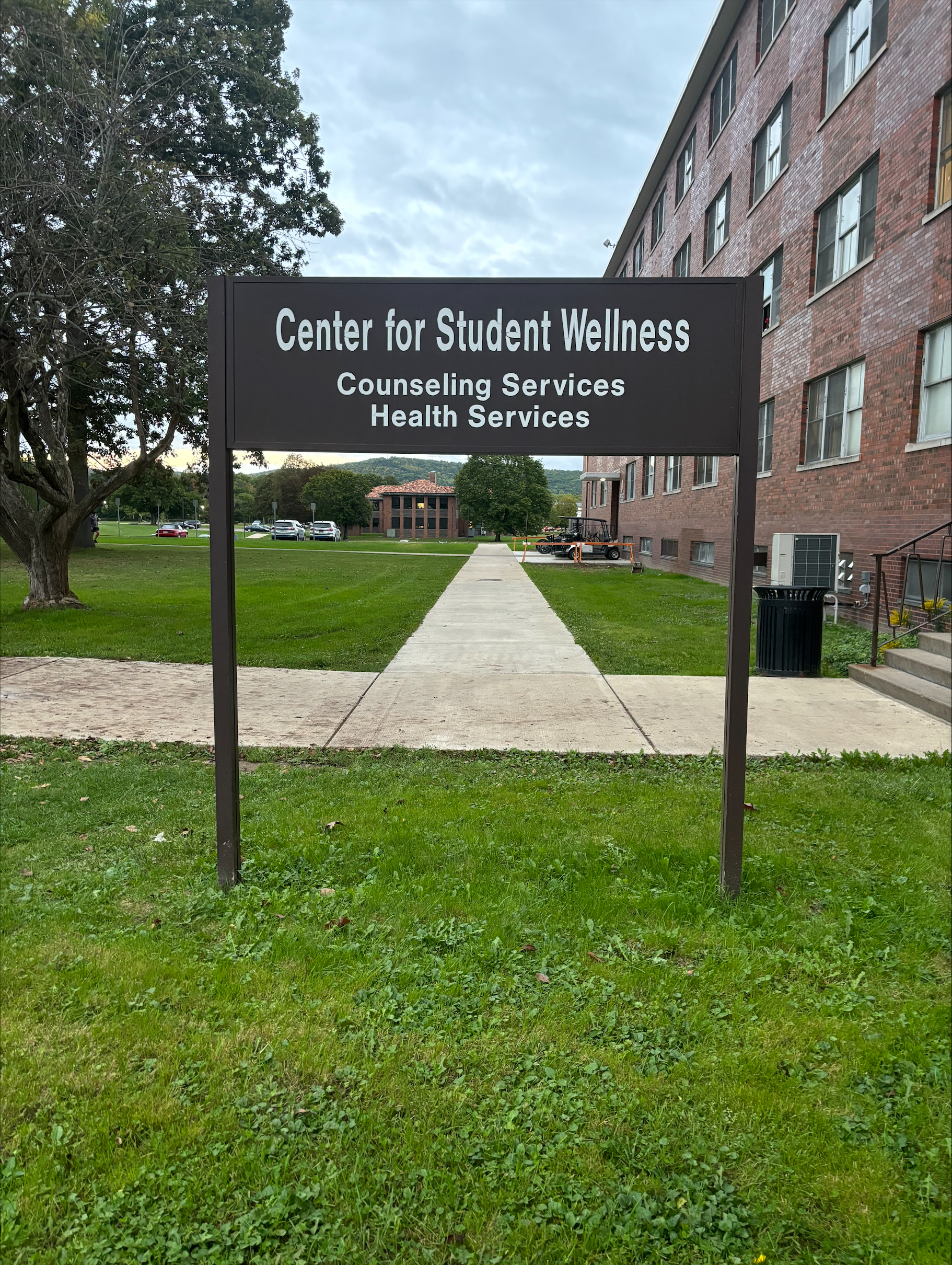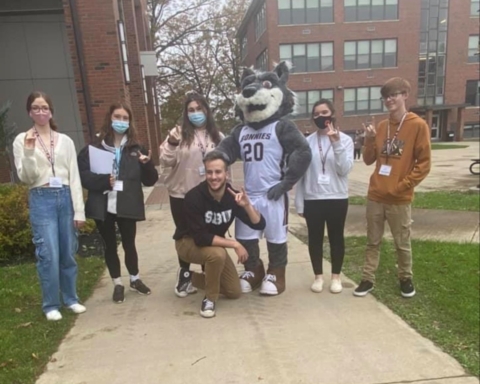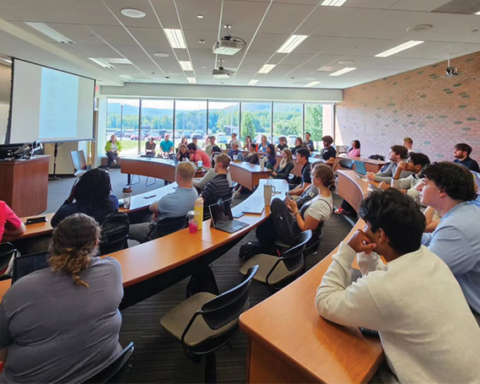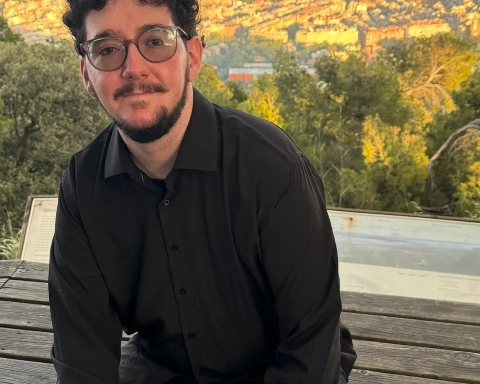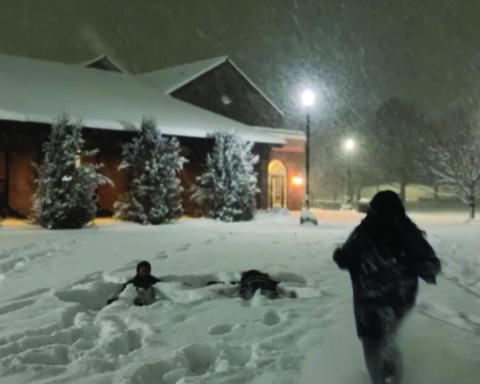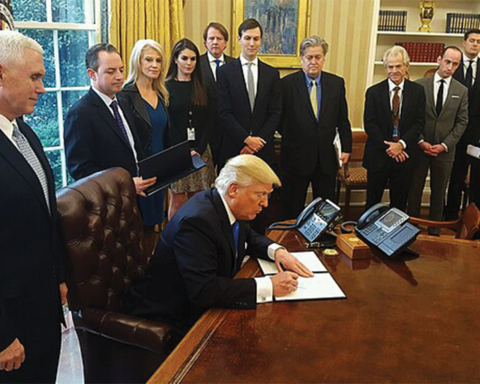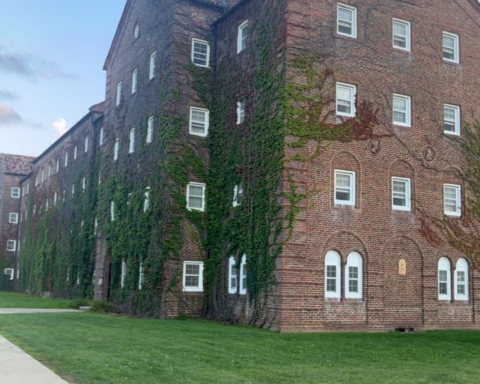By Cassidey Kavathas, staff writer
The email that arrives in every St. Bonaventure University student’s inbox at 8 a.m. leads to a survey of five questions on SBU.edu, as included in the community compact for reopening plans. Every student must complete this health survey daily. The university hopes to increase student participation in the survey to keep the campus community safe.
“On average, 840 students complete the screening form on business days,” said Tom Missel, chief communications officer at St Bonaventure University.
With a student population of around 2,000, a little less than half of all students are completing the survey on business days. The university has changed the time the email reminder arrives in student inboxes from 5:30 a.m. to 8 a.m. to try and increase student participation, according to Missel.
Victoria Wangler, a senior English and professional & creative writing double major, suggests that providing the survey on the SBU Connect app may increase student participation.
“If you got a notification every morning to complete the screening and you clicked the notification and it immediately brought you to the survey that might be useful,” Wangler said.
The Sandra A. and William L. Richter Center has been a main reason for students to complete the daily survey.
“Usually I only take care of [the survey] when I have to go to the Richter Center,” said freshman sports media major, Tyler Everett.
Ryan Connolly, a freshman undeclared major, agreed.
“I complete it usually when I have to go to the Richter Center for class or to get my pumps in,” said Everett.
To enter the Richter Center, students must present an email that shows they completed the health screening for the day even if a student is going to class in the multipurpose room upstairs. Faculty and staff can request a student show their confirmation email they recieve from completing the survey before entering class.
“I complete [the survey] every weekday, I forget on the weekends,” Wangler said.
Danielle Aiello, a freshman elementary education major, feels the same way.
“I do complete the screening every single day because I feel that it’s important to keep track of if you have symptoms or not,” said Aiello.
Wangler and Aiello represent a small portion of the student population. Over the past week, 1,606 unique students completed the screening survey at least once with the lowest participation on Saturdays and the highest participation on Mondays.
“I complete the survey for my own health and I know with the university, the more data they have the better they can protect and provide for the students,” said Wangler.
The university has used results from the survey to help combat community spread of the virus.
“We have had students indicate symptoms on the screening form, which triggers a call from the Wellness Center. Most often they turn out to be negative, or some other illness,” said Missel.
The daily survey is an integrated part of a much bigger plan to help keep the campus community safe.
“I think that [the survey’s] intention is to keep everyone safe, but the problem is if students don’t fill it out or are lying when they fill it out then that defeats its purpose,” said Wangler. “That’s not something the university can control, that’s the responsibility of the students.”
“I feel as though a lot of people do lie on it to get it done. For some it’s easier to just click no no no and be on with their day,” Aiello said.
Missel said that because some students have marked having symptoms in the survey that students are being conscientious when filling out the forms and not just clicking no for every question.
The survey is more than data for the university, it offers the opportunity for students to reflect on themselves.
“Not only does [the survey] allow us to check in on ourselves and see how we are feeling, but it also provides more of an emotional stability to know that someone is doing something,” said Everett. “It’s almost like a reassurance to an individual.”
kavathcj20@bonaventure.edu

